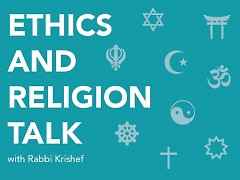The Reverend Colleen Squires, minister at All Souls Community Church of West Michigan, a Unitarian Universalist Congregation, responds:
“Yes, I believe that clergy have an ethical obligation to acknowledge behaviors that they might have done in the past that could be perceived as violating an inappropriate sexual boundary. Having done my seminary training in the city of Boston, MA following the clergy abuse crisis I have seen firsthand the magnitude of pain and suffering that comes with such a breach of trust. I think personal self-reflection is very important and healthy, and being as transparent as possible is the best approach. I think in general clergy need to start owning our own limitations and to ask for help rather than isolating ourselves. Studies shows that when a clergy person beings to isolates themselves they will soon find themselves in some sort of crisis down the road.”
R. Scot Miller, who writes from an Anabaptist and Quaker Christian perspective, responds:
“I have privately confided to women members of my church regarding past instances of sexually inappropriate behaviors that manipulated or mislead women, or made them feel threatened or at risk. These behaviors occurred more than twenty five years ago, and in light of the accusations made against Donald Trump during the campaign, I felt obligated to share. I am bound to answer all questions about my past behaviors honestly, trusting that my honesty will lead to outcomes desired by God to produce the most faithful community; a God who always defers grace and mercy to the victim prior to a victimizer. Through honestly, open communication, and integrity, my past should be held up in relationship to the life I live know, the boundaries involved with the life of the other person involved and how they may view justice, and an acknowledgment of how my past has influence my personal beliefs about sexuality in the present.”
Rev. Ray Lanning, a retired minister of the Reformed Presbyterian Church of North America, responds:
“This question reflects the present ethical crisis in the church and in society at large with regard to personal conduct in the workplace. Much that was written off in the past as tolerable misconduct (‘Boys will be boys!’) is now being brought to light and weighed in the balance of public opinion. Many today are living to regret the liberties they took, or worse, crimes they committed in former days. It is a painful process for generations of Americans who were told that there are no moral absolutes and given the advice that ‘if it feels good, do it.’
“Pangs of conscience are good if they lead to repentance, that is, a change of attitude toward sin, and a corresponding change in conduct. ‘Godly sorrow worketh repentance to salvation not to be repented of’ (II Corinthians 7:10). But it is unwise to for anyone, clergy or laity, to engage in speculation about merely possible lapses in conduct. That is the very definition of ‘morbid introspection.’ We have enough work to do addressing the actual, known ways in which we have violated the standards set for us in God’s Word. ‘If we confess our sins, God is faithful and just to forgive us our sins, and to cleanse us from all unrighteousness’ (I John 1:8).”
Father Kevin Niehoff, O.P., a Dominican priest who serves as Adjutant Judicial Vicar, Diocese of Grand Rapids, responds:
“I do not believe all actions that are unethical, especially regarding sexual misconduct (defined as sexual contact with an adult) between a priest and another mature and seemingly consenting woman or man, ought to be public information. I do believe the priest or deacon has a moral obligation to confess sin, and to most seriously consider informing his superior. I do not believe the priest or deacon is bound morally to make a public statement, taking into consideration the life and wishes of the other party.
“I caution us all to be aware of the concept of forgiveness. The action of an appropriate and just punishments is expected! But, too often in society today an act of justice or even forgiveness is equated with revenge. Revenge is never a just punishment because it perpetrates the violation with yet another forceful act… perpetuating a ferocious cycle.
“When one is sincerely asking for forgiveness of another… and the latter refuses forgiveness… the problem is no longer the one who sought forgiveness but the one who refuses to forgive. Forgiveness does not mean one forgets. Forgiveness witnesses what Jesus did for His followers when He died on the cross… for Jesus knew no sin and yet died so others may attain eternal life.”
This column answers questions of Ethics and Religion by submitting them to a multi-faith panel of spiritual leaders in the Grand Rapids area. We’d love to hear about the ordinary ethical questions that come up on the course of your day as well as any questions of religion that you’ve wondered about. Tell us how you resolved an ethical dilemma and see how members of the Ethics and Religion Talk panel would have handled the same situation. Please send your questions to [email protected].
The Rapidian, a program of the 501(c)3 nonprofit Community Media Center, relies on the community’s support to help cover the cost of training reporters and publishing content.
We need your help.
If each of our readers and content creators who values this community platform help support its creation and maintenance, The Rapidian can continue to educate and facilitate a conversation around issues for years to come.
Please support The Rapidian and make a contribution today.
